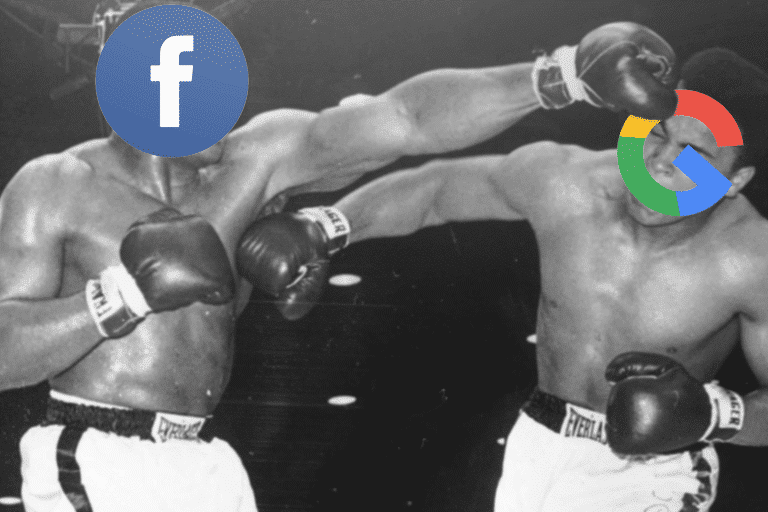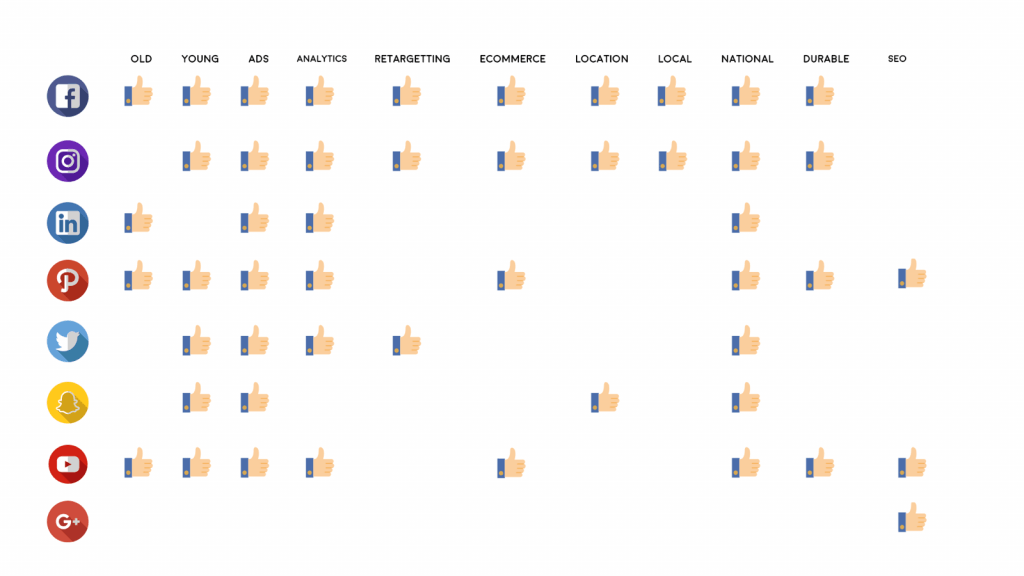Facebook SEO & How to Rank on Facebook
Facebook SEO is going to be a thing very soon, and if you’re not worried about how to rank on Facebook now, you probably will be in the very near future.
Technically, the term “Facebook SEO” isn’t correct because of the “E” part. Facebook isn’t a search engine…
At least, not yet.

On The Horizon: Facebook SEO
NeONBRAND is in the social media and search trenches every day, and we’ve been watching the signs for a while now. The way things are trending, we know what’s coming next:
Facebook is taking on Google.
And they’re probably going to win.
Google didn’t start G+ because they thought it would be neat to have a social network. They saw this coming, too, and they recognize that Facebook has a major edge – social signals.
Google can tell you the top rated restaurants in your area.
Facebook can tell you which restaurants in your area are rated well, and whether or not your friends liked them.
There’s not another company or social network that’s better poised to take over as the reigning search champion. Check out the graphic below to see what we mean:

As Facebook gradually makes minor changes to its search feature, it’s obvious that they’re moving towards search domination…and that means that it’s time to start thinking about how to rank in Facebook.
How to Rank in Facebook
It’s a little early to start making a definitive list of Facebook ranking factors, but since Facebook’s algorithms already give preference to certain behaviors and signals, we can confidently say that these things are going to matter:
Facebook User Engagement
Engagement has always been the name of the game, and it’s not likely to change any time soon.
Facebook wants to keep people on the site longer, and more engagement means more time spent scrolling and interacting. Promoted posts that get plenty of engagement (likes, comments, and shares) already get preferential treatment, so it’s not much of a stretch to deduce that it’s going to be a factor in Facebook search rankings.
We also expect that engagement percentage is going to matter.
When you compare the size of your reach to the number of people that interact with your content, pages that engage a high percentage will likely enjoy better placement in search.
Mentions and Check-Ins
People tagging you, talking about you, and checking in at your physical location tells your followers – and Facebook – that you’re worth checking out.
Mentions and check-ins are similar to engagement, except that rather than interacting with your posts, users interact with your page.
Just like on Google, popular pages are likely to get preferential treatment.
Popularity for a Facebook page isn’t necessarily a matter of visits or traffic, though, so mentions and check-ins will likely be a factor.

Facebook Reviews
Both the number and the average rating of your Facebook reviews will probably contribute to your Facebook search ranking.
Here’s something else to think about:
Facebook has all that social data, so ratings from a user’s friends may be weighed more heavily than your overall averages. In other words, if your overall review rating is 4.5 stars out of 5, but the person searching has several friends that have given you 1 and 2 star ratings, that may affect how you appear in search.
Of course, this is just speculation right now…but that social data is definitely going to be a major factor.
Compliance with Facebook Rules
Many a social media marketer has lamented Facebook’s rules about things like text on images, landing page requirements, and subject matter restrictions.
Facebook’s advertising policies are a good indicator of the kinds of content they do and don’t want to promote.
It’s true that there’s a big difference in organic content that gets engagement and content that you’ve paid to promote. Certain kinds of posts (like political commentary) often see lots of organic reach, though those types of post aren’t eligible for boosting according to ad guidelines.
Search is more organic by nature, so posting content that’s technically outside of promoted post parameters may not hurt your Facebook rankings.
However, if Facebook offers a search-specific ad product to rival Google’s pay-per-click ads – which is a likely scenario – the restrictions will probably be very similar to their existing ad guidelines.
Accurate Page Information
Right now, when you boost a post, Facebook evaluates your ad and the landing page associated with it. They’ve been introducing tools and algorithms to identify and combat fake news, and they regularly pop up on user’s timelines to talk about privacy and security.
We can surmise, then, that Facebook makes user trust a priority.
It won’t be a surprise if your rank is affected by things like your page information matching the information on the website you link to.
Also, it’s probably wise to pay attention to using page templates correctly, adhere to the rules of conduct, and generally try to follow Facebook’s best practices.

Regular Content Updates
Fresh content isn’t a new SEO idea.
Posting regularly, engaging with your users, and keeping a steady flow of likes to your page are things that matter to Facebook.
After all, Facebook doesn’t want to send users to a dead page that hasn’t been updated in months.
It also doesn’t want to send users to a page that posts a lot, but doesn’t post anything that people care enough about to engage.
Images, videos, and perhaps even notes will make a difference.
Fast Message Responses
If you have a page, you’ve probably noticed that Facebook gives you tips about responding to messages quickly to get the badge.
You can set up Instant Replies, an automatic response through Facebook, to speed your answers.
Or, if you’re smart, you’ll set up a Facebook Chatbot to provide service to your fans. NeONBRAND uses one powered by Chatfuel.

What You Should Do Immediately
Right now, we’re still in a transitional phase, and Facebook isn’t aggressively pursuing search.
Google rankings still matter, and they’ll probably continue to matter to some degree, because certain types of companies like dating services, penny auctions, and surveillance equipment retailers can’t advertise on Facebook.
The shift is coming, though.
Soon, people will be searching for things like “coffee shops near me” through Facebook, and they’ll get much more valuable information than Google can give.
Shortly after the switch becomes obvious, business will be scrambling to improve their Facebook SEO, and the longer you wait to take action, the harder it will be to rank in Facebook search.
Pages that already have a thriving, engaged audience will have a serious advantage.
Get ahead of the curve.
Right now, before your competition catches on, here’s what you should do:

1: If you don’t already have a Facebook page, create one.
Realistically, you probably already have a Facebook page. If you don’t, you should start one now.
Seriously, do it right now! Don’t even finish reading this post. Go do it.
If you already have a page, it’s time to stop neglecting it. Use post scheduling to plan out some content, get some good images, and start interacting with your audience.
2: Grow your following.
Social media strategy is kind of a broad topic, but the bottom line is that you need to create good content and get it in front of people who care.
Consistency is one of the biggest factors in growing and keeping your audience. Don’t spam them, and don’t overwhelm them, but don’t neglect them either.
It will take some practice to find your sweet spot.
That’s why you’re starting now, before Facebook becomes even more important to your web traffic strategy.
3: Start boosting good posts.
You’re going to want to boost regularly for 3 reasons:
First – it helps you grow your following and see what’s working.
Second – it’s a good idea to get familiar with the ad product now, since it’s only going to get more important as Facebook search comes into its own.
Third – your history of promotion within Facebook might turn out to be a factor in search. You pay to play, right?
4: Keep your pages clean and active.
Social media marketing, SEO, and basically the entire scope of a successful entrepreneur’s life depends on building good habits.
Once you’re in the habit of doing things right, it’s much easier to keep going and growing.
Just like Google considers the age of your domain and the amount of good content on your website, Facebook is probably going to look at your page’s history when it determines your Facebook search ranking.
Start building that history now.
Plus, it’s already a good marketing strategy.

